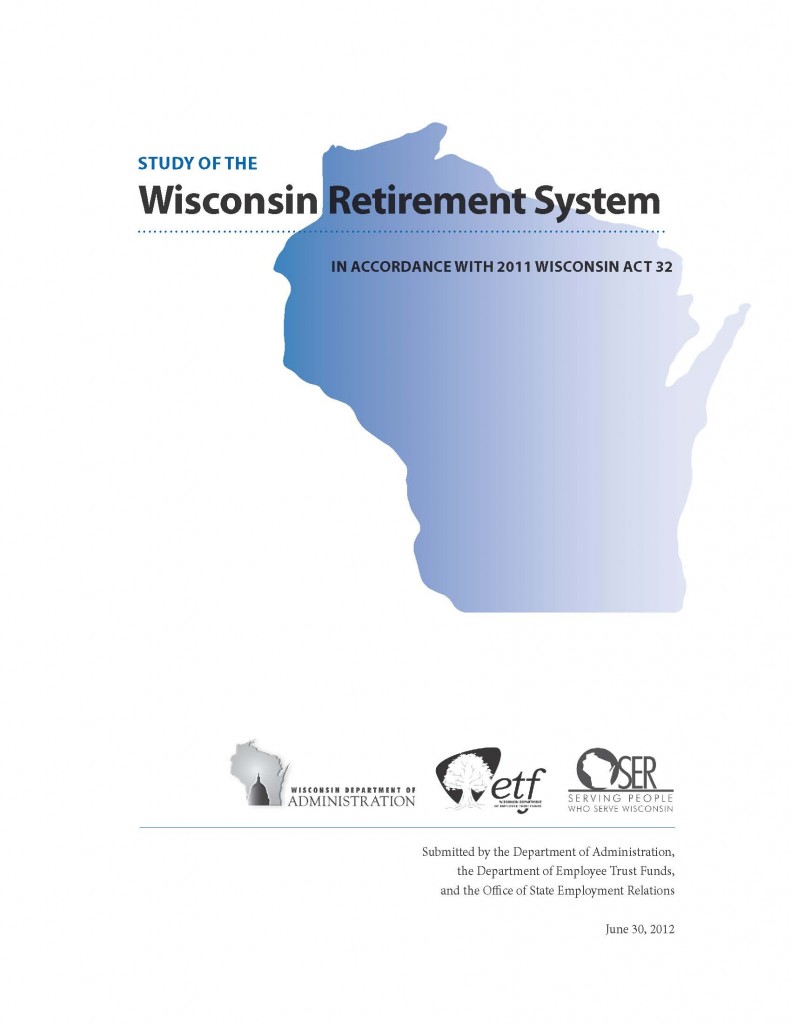 A report released today by the Department of Administration, the Department of Employee Trust Funds, and the Office of State Employment Relations recommended against any changes to the Wisconsin Retirement System. The report was requested as part of Act 32, the 2011-13 biennial budget.
A report released today by the Department of Administration, the Department of Employee Trust Funds, and the Office of State Employment Relations recommended against any changes to the Wisconsin Retirement System. The report was requested as part of Act 32, the 2011-13 biennial budget.
Governor Scott Walker issued the following statement in reply:
The report released today confirms that both taxpayers and pensioners are getting a great deal with the WRS. Compared to other states, Wisconsin consistently rates among the best performing public pension systems in the country.
Both the State of Wisconsin and WRS must be fiscally sustainable moving forward to ensure that we meet our outstanding benefit obligations, which I am confident we can do. The long term structural changes we made last year will help ensure that the state is able to fulfill the commitment it has made to pensioners.
I want to be very clear: I am currently not planning to make any substantial changes to the WRS. However, I will continue to work to ensure that the WRS is fiscally sustainable for both taxpayers and retirees.
Administration Secretary Mike Huebsch recommended that “(w)e should regularly review our retirement system to be certain we provide benefits that serve the taxpayers as well as attract and maintain a high quality workforce.”
The report found that WRS is an “efficient and sustainable” retirement system. Key findings include:
- WRS is stable and highly funded — nearly fully-funded since 2004.
- The contribution rate is stable — between 10 and 12 percent of covered payroll.
- The cost to taxpayers is one of the lowest in the nation and decreased by half as a result of Act 32 last year.
- WRS members bear between 75 and 100 percent of the risk associated with its two funds, making it a low risk to taxpayers.
- Benefit levels are lower than most public pensions.
The study examined an optional defined contribution (DC) plan as an alternative to the current defined benefit (DB) plan. The study found that while defined contribution plans offer no risk to taxpayers, they also result in decreased benefits for annuitants and increased administrative costs and higher employer contributions. The study also found that WRS could be weakened as more participants move to defined contribution plans, restricting investment in certain types of assets.
Allowing employees to opt out of WRS was also examined. The study found multiple problems with that option — tax qualification issues with the IRS, significantly decreased benefits at retirement, the possibility of lower investment returns, a negative effect on contribution rates for participants remaining in WRS, and the need for those opting out to purchase death and disability benefits.
In conclusion, the study offered this recommendation:
Given the current financial health and unique risk-sharing features of the WRS, neither an optional DC plan nor an opt-out of employee contributions should be implemented in Wisconsin at this time. Analysis included in this study from actuaries, legal experts, financial experts, and information from similar studies conducted in other states shows that there are significant issues for both study items in terms of the actual benefit provided and potential for negative effects on administrative costs, funding, long term investment strategy, contribution rates, and individual benefits.
The study also looked at retirement systems around the country, noting that many of the states made changes as a result of underfunding issues. Nine states have enacted optional defined contribution plans, while two states have returned to a defined benefit plan in response to cost and benefit concerns with defined contribution plans.
